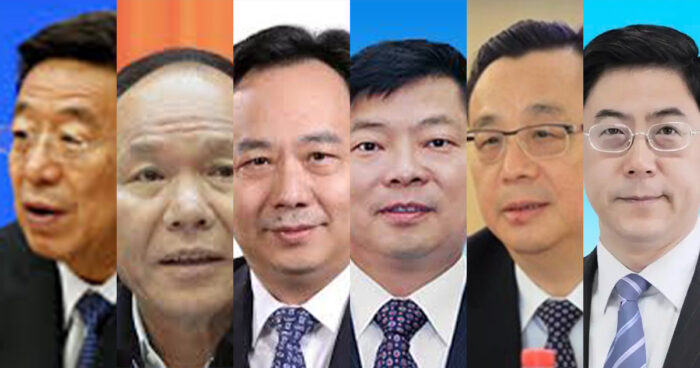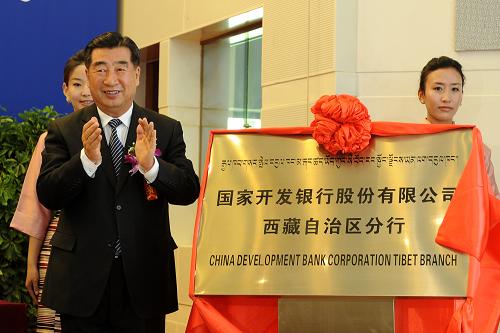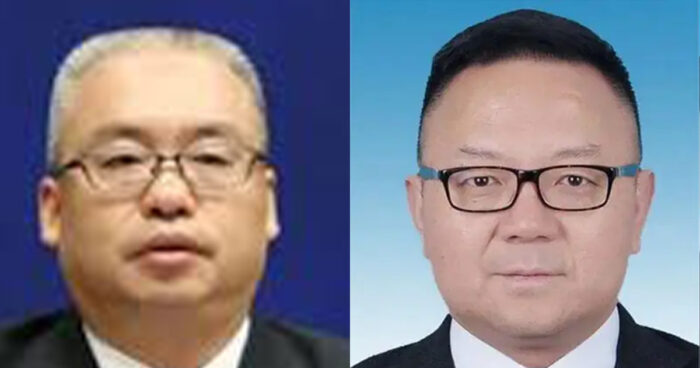On June 16, 2024, Chinese state media reported that former Tibet Autonomous Region (TAR) Party Secretary Wu Yingjie is being investigated for “suspected severe violations of Party discipline and the law.”
The announcement has prompted speculation that Wu’s downfall might be connected to his work in Tibet. Wu spent over 45 years working in different departments of the TAR government from 1974 to 2021, lending some credence to this speculation.
However, given the Chinese government’s penchant for secrecy no details have been provided about Wu’s investigation, and there may not be an authoritative answer until charges have been filed and his sentencing is announced. In the meantime, it is possible to analyze some developments around the time of Wu’s investigation, including actions taken against other senior officials that are connected to the possible misuse of funds in Tibet.
Timeline of events
On December 28, 2020, Chinese state media reported on a meeting that Wu Yingjie, then secretary of the TAR Party Committee, and Che Dralha (Chinese: Qi Zhala), then chairman of TAR, had in Beijing with China Development Bank (CDB) Chairman Zhao Huan and Ouyang Weimin, then president of the Bank. They signed a “Memorandum of Cooperation on Development Finance Supporting Long-term Stability and High-quality Development in Tibet in the New Era.” Also present in that meeting were Zhou Qingyu, then vice president of CDB, and Jiang Jie, then TAR party committee member.

(from left) Wu Yingjie, Che Dralha, Zhao Huan, Ouyang Weimin, Zhou Qingyu, and Jiang Jie
Since then investigations, indictments, and trials have been variously announced against three of the six participants of this meeting, while another one has disappeared from public view. This could indicate that this meeting and the participants involved are connected with the latest investigation against Wu Yingjie.
On June 14, 2024, two days before Wu’s investigation was announced, Jiang Jie, one of the attendees of the meeting, was indicted after prosecutors accused him of “taking advantage of his various positions to seek profits for others, in return he illegally accepted huge sums of money and valuables,” according to state media. The investigation against Jiang was announced on July 3, 2023, and the reasoning given was the same as for Wu: “for suspected severe violations of Party discipline and laws.” Jiang was subsequently dismissed from the membership of the TAR committee of the Chinese People’s Political Consultative Conference.
On May 19, 2023, disciplinary and supervisory investigation was announced against Zhou Qingyu of CDB, another participant in the 2020 meeting. He was arrested in December 2023 on suspicion of bribe-taking, again with the same reasoning given as Jiang and Wu.
On June 14, 2024, state media reported on his trial. Reports said between 2013 and 2023, “Zhou took advantage of his various positions at the bank to provide assistance to others in matters such as loan financing, project contracting, business operations, and personnel arrangements. In return, Zhou accepted money and valuables worth over 67.43 million yuan (about 9.5 million U.S. dollars).”
Corruption in Tibet under Chinese rule
The official narrative is that these are part of the broader anti-corruption campaign announced by Chinese Communist Party leader Xi Jinping. It is possible that given the close proximity of these announcements, they might be connected to a larger group of people working on Tibet – if corruption is the real reason for the investigation.
To date, from among the participants of the 2020 meeting, only CDB’s Zhao Huan remains in his position as the chair of the Bank. On February 17, 2023, CDB announced that Ouyang Weimin was relieved of his post without providing any reason. He seems to have disappeared from public view, and it will be unsurprising if an investigation against him is announced soon.
The only other named attendee, and the only Tibetan in that meeting, is Che Dralha. Soon after his transfer to the TAR from Dechen (Diqing) Tibetan Autonomous Prefecture in Yunnan in 2017 observers noted indications that Chinese authorities were promoting him for possible token Tibetan representation as a senior leader at the national level. However, in October 2021 he was unexpectedly transferred to serve as a vice chair of a committee of the National People’s Congress (NPC). It might not be a coincidence that Wu was also transferred from Lhasa to be a vice chair of another committee of the NPC. It may be the case that Wu and Che Dralha were already being scrutinized by the Party.
Available information indicates that CBD has been involved in funding projects in the TAR for years. It has a branch in Lhasa that opened in 2011, and according to a recruitment announcement, it “closely focuses on serving the Party’s Tibet governance strategy in the new era, gives full play to the advantages of medium- and long-term investment and financing of development finance and comprehensive financial services, takes root in the snow-covered plateau, serves the construction of the border, vigorously supports infrastructure construction, energy and transportation, ecological protection, rural revitalization, improvement of people’s livelihood and characteristic and advantageous industries, and serves the long-term stability and high-quality development of Tibet.”

Hui Liangyu. Member of the Political Bureau and vice premier, inaugurating the TAR branch of China Development Bank on July 20, 2011
In 2013 CDB announced that it was investing 50 billion yuan (around US $ 7 billion) of financing to support TAR economic and social development from 2013 to 2020. In 2018, CDB announced that it was investing 60 billion yuan (around US $8 billion).
Wu has spent most of his professional career working in TAR, having worked there nearly 50 years (from 1974 to 2021). In August 2016, he became TAR party secretary before being shunted to Beijing in October 2021. Interestingly, on Dec. 9, 2022 the U.S. Department of the Treasury’s Office of Foreign Assets Control (OFAC), announced that Wu was among 40 individuals and entities that are being sanctioned for their connection to corruption or human rights abuse across nine countries.
Will Che Dralha face investigation?
A Tibetan source in exile with contacts in Lhasa said that when hearing about the investigation into Wu Yingjie in June, some people there asked why Che Dralha was not being investigated.
There may be some basis for this speculation. Che Dralha and Wu worked together in Lhasa from 2017 to October 2021, and the announcement of their transfer from Lhasa was made on the same day, indicating a likely connection. The fact that he did not appear anywhere during the 20th Party Congress and did not make the jump to national leadership despite previous years of active promotion by the Party may be another indication.

Former TAR officials Zhang Yongze and Wang Yong
Also, in January 2024 Zhang Yongze, who was vice chairman of TAR when Che Dralha was the chairman, was sentenced to 14 years in prison for bribery. According to Chinese state media, he been indicted earlier on charges of taking bribes of about 51.8 million yuan (US $7 million). Similarly, on January 29, 2024, investigation against another TAR vice chair, Wang Yong, was announced and in March he was dismissed from his position in Tibet.
Conclusion
It may be some time before there are conclusive answers about Wu’s actions and those of the other members of this circle.
The established facts, however, are indicative of the nature of Chinese rule in Tibet. The absence of a free press, freedom of speech, and an independent judiciary have created the conditions for massive, endemic corruption that includes China’s highest leaders in Tibet. Xi’s anti-corruption campaign may remove some of these officials from power, but it has not addressed the broader factors that gave rise their corruption in the first place. It seems unlikely that many leading officials, from the lowest level to the highest, could survive any level of scrutiny into their actions.
There is an awareness in Tibet of widespread corruption in Chinese officialdom and the Chinese Communist Party. Chinese authorities do not take kindly to outside attempts to curb this corruption, however; see the case of Sengdra, a Tibetan township chief who spent more than a year in prison for raising questions about government corruption.
If Xi is truly concerned about corruption in Tibet, allowing Tibetans to speak freely about the abuses of CCP officials in Tibet is a better solution than fostering an environment of corruption and then haphazardly pursuing some of the officials within it.

